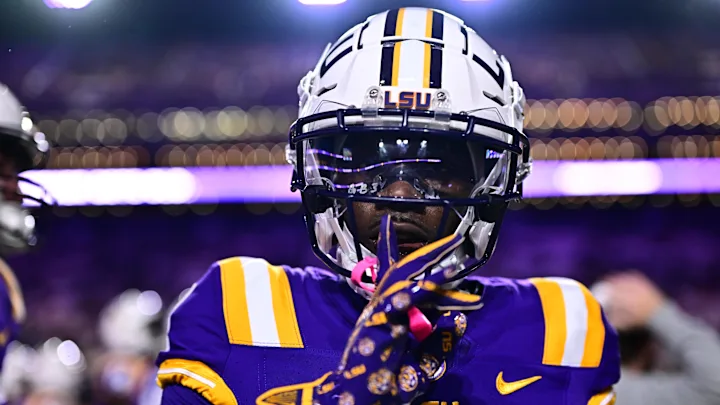Clemson Tigers responded to LSU’s Brian Kelly’s “Death Valley Jr.” comment, defending their program and emphasizing their own football tradition and competitive spirit.

The Clemson Tigers’ response to LSU head coach Brian Kelly’s remark calling their home stadium, Memorial Stadium, “Death Valley Jr.” has sparked a significant amount of discussion within college football circles. To understand the depth of this exchange, it’s important to consider the historical and cultural significance of both programs, the nature of rivalry and competitive pride in college football, and the broader implications of such comments in shaping team identities and fan perceptions.
Historical Context and Traditions
Clemson’s Memorial Stadium, affectionately known as “Death Valley,” is one of the most iconic venues in college football. Located in Clemson, South Carolina, it has been the home of the Tigers since 1942, and its nickname “Death Valley” was reportedly coined by legendary coach Frank Howard in the 1940s, symbolizing the intimidating environment for visiting teams. Over the decades, Clemson has cultivated a reputation for passionate fan support, a fierce home-field advantage, and a tradition of success that includes multiple national championships and ACC titles. The nickname has become synonymous with Clemson’s identity, embodying their tough, resilient, and competitive spirit.
In contrast, LSU’s Tiger Stadium, known as “Death Valley,” is arguably the most famous and intimidating college football venue in the nation. Located in Baton Rouge, Louisiana, it has a storied history dating back to 1924 and is renowned for its electric atmosphere, especially under night games when the stadium is filled with roaring fans and the intense energy of the Cajun country. LSU’s “Death Valley” has become a symbol of LSU’s pride, tradition, and football dominance.
Both stadiums share the nickname “Death Valley,” which has become a badge of honor for their respective programs. The rivalry and mutual respect between these programs are rooted in their shared identity as powerhouse football programs with legendary stadiums that strike fear into visiting teams.
The “Death Valley Jr.” Comment and Its Significance
When LSU’s Brian Kelly referred to Clemson’s Memorial Stadium as “Death Valley Jr.,” it was likely an attempt to acknowledge Clemson’s reputation as a tough environment while also asserting LSU’s own storied tradition. However, the comment was perceived by many Clemson fans and alumni as dismissive or perhaps as an underestimation of Clemson’s own formidable home-field advantage. The phrase “Jr.” (junior) could be interpreted as a subtle way of suggesting that Clemson’s “Death Valley” is a lesser or secondary version of LSU’s, which has long been considered the original or more iconic “Death Valley.”
The reaction from Clemson was swift and firm, emphasizing pride in their stadium, tradition, and football program. Clemson’s response underscored their belief that their home environment is equally, if not more, intimidating and historic. The Tigers’ defenders pointed to their recent success, national championships, and the passionate support from their fanbase as evidence that their “Death Valley” holds its own among college football’s most revered venues.
College Football Rivalry, Pride, and Identity
In college football, stadium nicknames and traditions are more than mere labels; they are integral to a program’s identity. The nickname “Death Valley” has become a symbol of Clemson’s resilience and toughness. For LSU fans and players, their “Death Valley” represents a fortress of football dominance. When a coach from another program dismisses or diminishes a stadium’s reputation, it can be seen as a challenge to that identity, prompting a defensive response rooted in pride.
Clemson’s reaction exemplifies the fierce loyalty and competitive spirit prevalent in college football culture. It’s not just about the game on the field but also about heritage, tradition, and respect. Clemson’s defenders likely perceive Kelly’s remark as a slight or an underappreciation of their program’s history and the formidable atmosphere they have cultivated over generations.
Moreover, such comments often serve as motivation. Clemson players and fans may interpret Kelly’s words as an invitation to defend their turf and demonstrate that their “Death Valley” is a place where opponents face an uphill battle, regardless of what others may say.
Broader Implications and the Culture of Respect and Rivalry
The exchange highlights a broader aspect of college football culture: the importance of mutual respect among programs and the role of trash talk in building rivalries and narratives. While trash talk can sometimes be seen as unsportsmanlike, in college football it often adds to the pageantry and emotional intensity of the sport. Coaches and players frequently use comments to motivate their teams, energize the fanbase, and create a narrative that elevates the significance of the game.
In this case, Kelly’s remark was likely intended as a compliment to Clemson’s reputation, but it was received differently—perhaps as a slight or an underestimation. Clemson’s response underscores their desire to maintain their program’s dignity and to remind everyone that their stadium is among the most intimidating in the country, a point of pride that has been earned through years of hard-fought games and passionate support.
Impact on the Teams and Future Matchups
The back-and-forth has implications beyond just words. It can influence team motivation, fan engagement, and media narratives leading up to future encounters. Clemson, feeling disrespected, might channel that emotion into their preparations, emphasizing their home-field advantage in subsequent games. Conversely, LSU might view the exchange as a sign to prepare even more rigorously when facing Clemson, knowing that their reputation is being challenged.
Furthermore, such exchanges contribute to the rich tapestry of college football rivalries, which often extend beyond the field into the cultural and regional identities of the schools involved. They fuel stories, debates, and traditions that are passed down through generations of fans.
In sum, Clemson’s response to Brian Kelly’s “Death Valley Jr.” comment was rooted in pride, tradition, and a desire to defend their program’s reputation. It exemplifies the passionate and sometimes fiery nature of college football culture, where stadiums are sacred and nicknames embody a team’s spirit. While Kelly’s remark may have been intended as a compliment, Clemson’s reaction underscores the importance of tradition and the deep-seated pride that fuels college football rivalries. Ultimately, such exchanges serve to heighten the anticipation for matchups, reinforce team identities, and celebrate the rich traditions that make college football a unique and beloved sport across the nation.









